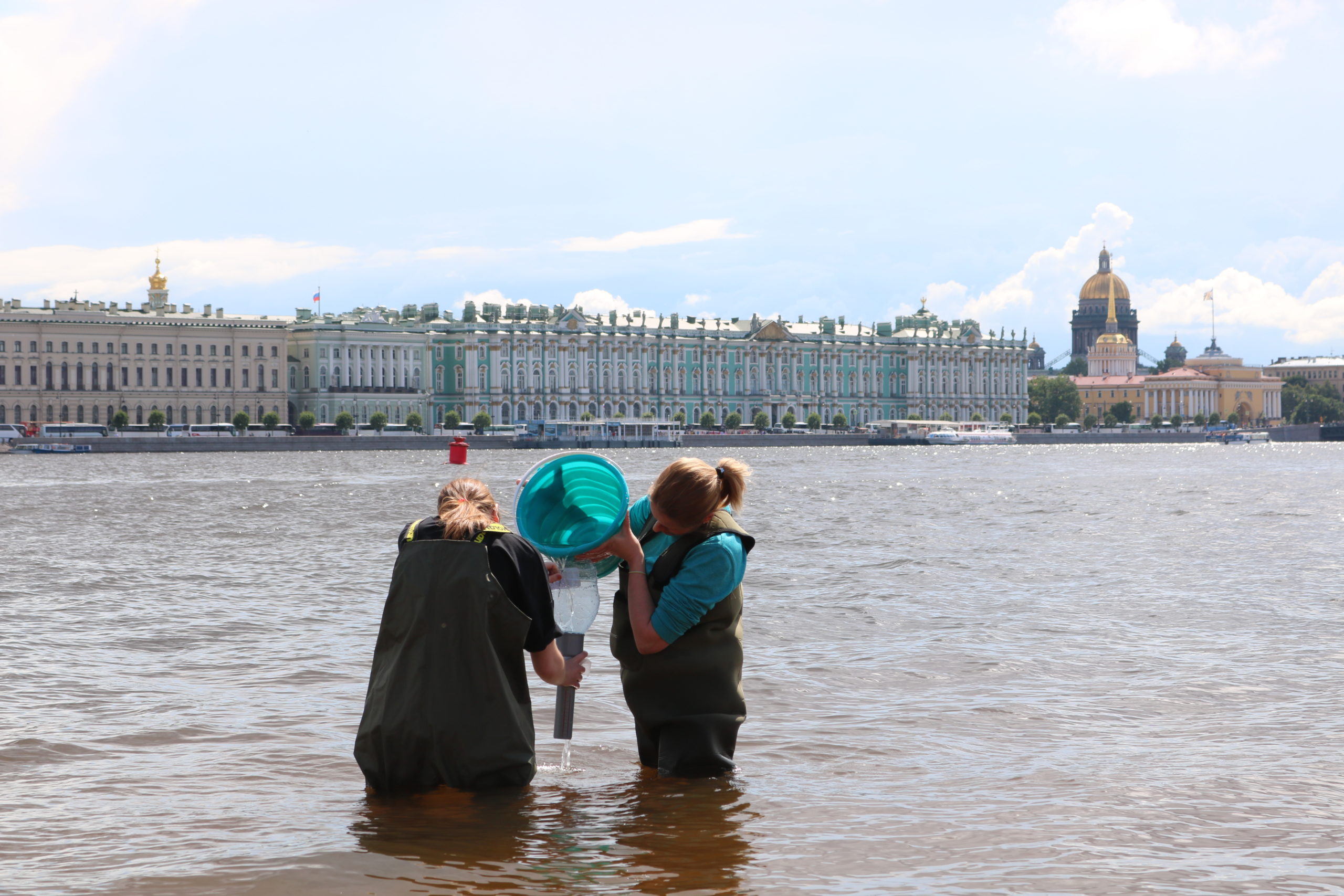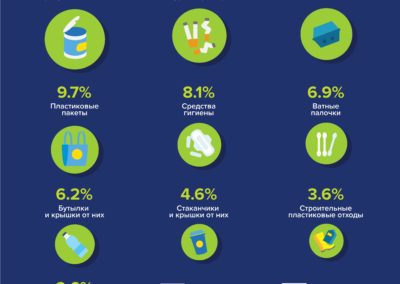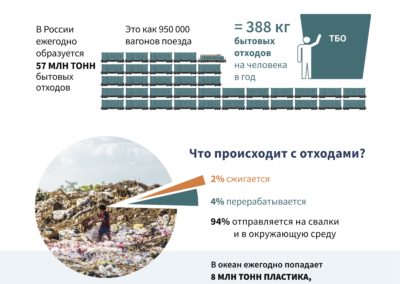More Baltic Less Plastic

Around 1.500 tones of plastic ends up in the Baltic sea yearly from St. Petersburg and the surroundings (7 million inhabitants). A serious part of this waste – small particles called microplastic – accumulates and behaves like a magnet absorbing pollutants and transferring them up the food chain. Marine animals can take plastic as food which could be fatal for them. Plastic particles can be found in tap water, sea salt, seafood and even in the human body.
Wasteful consumer patterns, coupled with growing population and invalid waste management systems are considered as serious threats to the marine environment. While the EU is already aware of the plastic and the harm it brings to our ecosystem health, the Russian NGOs, scientists and dedicated young people are fighting for the broader awareness of this problem in their country. With the ‘More Baltic Less Plastic‘ project (2018-2020) the right agenda was set to cut the input of plastics to marine environment and activate the local and regional governments to tackle the problem in legal terms.
Project goal & objectives
The project aimed to reduce the amount of plastic litter entering the Baltic Sea from the Russian Federation, by:
- Raised awareness and involvement on marine litter problem among NGOs, researchers, teachers & students and private people
- Nation-wide inspiration for similar initiatives and joint actions
- Changed consumer behavior of project participants and followers
- Acknowledgement of the problem by the state authorities
Outputs
- Kit of methodologies for marine litter and microplastics’ monitoring and educational materials on plastic issue
- Public & private monitoring actions, results registered on the interactive map
- Micropastics problematic intensively spread in social networks (e.g. project VK website) media attention was also created through press articles, interviews, podcasts, TV shows and videos.
- Info-centres and exhibitions on micro-plastics, presentations at scientific seminars and regional events. Nation-wide conference to present final results
- Educational & demonstration activities for students, teachers, activists and local people.
- Lobbying and advisory work for the governmental institutions dealing with waste management.
Impressions
Beneficiary
Ecocentrum St. Petersburg
Project region
Gulf of Finland – St.Petersburg and Leningrad oblast
Project duration
2018-04-01 – 2020-12-31
Budget
total project budget: €72,000
funding BaltCF: €56,700


